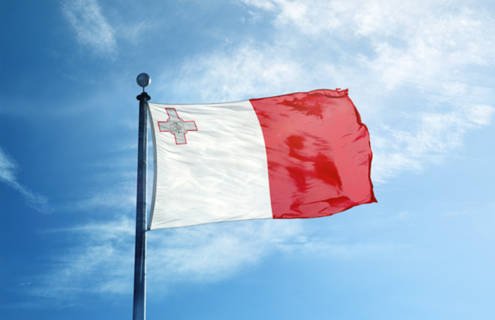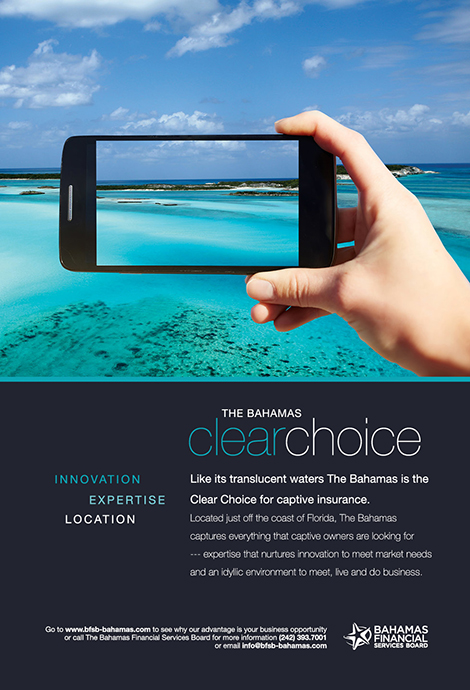After a successful 2016 and the licensing of its first securitisation cell company, Malta insurance industry professionals are looking ahead to 2017
Last year saw Malta become the first full EU member state to introduce a securitisation cell company (SCC), making it a particularly innovative time for the domicile.
Malta extended its protected cell company (PCC) legislation to securitisation vehicles and reinsurance special purpose vehicles (RSPVs), thereby adapting the cell structure for insurance-linked securities (ILS) transactions.
In August 2016, Exchange Re became the first SCC to be set up for cell-based ILS and collateralised reinsurance transactions. The SCC was authorised as a RSPV under Malta’s RSPV regulations, and is fully compliant with the EU Solvency II regime.
Speaking at the 2016 Federation of European Risk Management Associations Risk Management seminar in Malta in October, Malta Prime Minister Joseph Muscat suggested that the country had gained a “significant brand” in captive insurance in Europe since the implementation of the new PCC legislation.
Karl DeGiovanni, managing director of Aon’s Malta office, also said there has been increased interest in protected cells, not only from countries with parents mainly in Europe, but also from further afield.
In Malta, there are now 12 licensed PCCs with a total of 32 cells. According to Joanna Aquilina, CEO of DARAG, a run-off insurance company based in Malta, there are also new PCCs and cells currently being considered by the Malta Financial Services Authority.
Aquilina says: “Leveraging its PCC legislation, Malta places itself in a unique position as an EU domicile offering a range of insurance structures that can apply to different stakeholders and diverse needs.” The recent trend in formations has been for more cell formations than standalone captives or insurers, irrespective of the parent’s size.
Ian Stafrace, chief risk officer at Atlas Insurance, suggests that this is mostly due to capital, cost and governance efficiencies, especially under Solvency II, with some companies even considering conversion from a standalone company to a cell.
For example, one recent new cell was a conversion from the Swiss captive of a multinational.
Stafrace explains that as a full EU member state, “Malta enjoys the freedom to provide services in the countries forming part of the European economic area (EEA)”.
Stafrace says: “This has enabled organisations to establish cells as captive risk financing vehicles underwriting risks directly without a fronting insurer.”
“Captives and insurers outside the EU have also set up cells in Malta as pure fronting facilities to reduce their fronting costs.”
Since, and in the run-up to, the implementation of Solvency II in January 2016, captives have had to examine in detail how they operate. According to DeGiovanni, inevitably, a number of entities have found that the costs of Solvency II far outweigh the benefits for standalone vehicles and so they are looking at innovative and cost-effective means of retaining risk, including protected cells.
He says: “This is why we are seeing an increased interest in protected cells within White Rock, Aon’s protected cell vehicle.”
Since Solvency II went live, it has acted both as filter and catalyst for captives.
Stafrace says: “The companies that remain, and new ones being set up, are of a higher quality and are more central to their organisations’ strategies in managing their risks or diversifying these with third party business.”
“While adding value, this in turn will help prove to tax authorities the genuine substance and importance of such subsidiaries.”
Malta continues to attract a number of captives in the market, according to Aquilina, with new applicants suggesting an increased interest in the domicile.
She says: “Even from an industry perspective, we continue to attract seasoned people to support the growth of the insurance market in Malta, giving the required added value.”
Now that Malta has the legislation in place, does the country have the potential to become a European ILS hub?
Over the last five years, the ILS market has expanded at a rapid pace. Aquilina suggests that Malta has the necessary infrastructure and legislative framework in place to be able to take on ILS structures.
DeGiovanni agrees that Malta has the potential.
He suggests that the regulation is in place, the necessary marketing is being carried out and the regulator has enacted a Solvency II-compliant, cost-effective process, which puts the country in “good stead”.
He also points out that being a full member of the EU makes the jurisdiction more attractive.
Stafrace notes that, with Malta’s securitisation cell facilities and legislation compatible with all EU directives, the domicile “can truly become the go-to destination for onshore ILS vehicles as local expertise and experience in the sector grows”.
Looking ahead, from an insurance industry perspective, DeGiovanni predicts that innovation will play a key role in being one step ahead.
He says: “As a jurisdiction, we need to continue to think globally.”
“Globalisation has brought about increased opportunities in the form of international partnership, technological innovation and business growth for companies around the world.”
“Bridging the geographical gaps of countries and companies through globalisation provides unprecedented opportunity for growth.”
Aquilina suggests that Malta will see new insurance licences for new carriers writing across the EEA via passporting rights, resulting in more captives and more cells.
However, she concedes that 2017 could be a year of many anticipated changes, driven by the UK’s vote to leave the EU, and by the new geopolitical and economic conditions.
Stafrace also highlights the Brexit vote, noting that the uncertainty could bring an opportunity for Malta to provide support and solutions. In fact, he reveals that enquiries have already “increased significantly” following the vote in June, and suggests that the number of applications in the pipeline is on the up once again.





